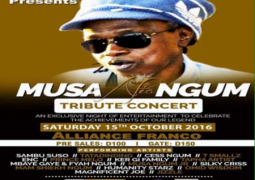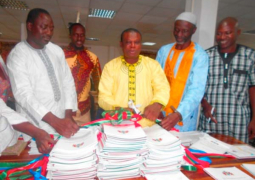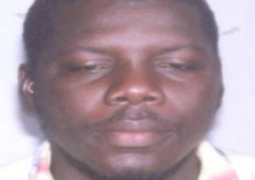The 8th World Conference on Sport, Culture and Education was organised in Amsterdam, Netherlands, by the International Olympic Committee, in partnership with the United Nations Educational, Scientific and Cultural Organisation (UNESCO), from 25 to 27 November 2012.
More than 500 delegates from National Olympic Committees, International Federations, Organising Committees for the Olympic Games, educational and cultural institutions, UN specialised organisations, governmental and non-governmental organisations participated in this Conference.
Under the theme “Olympism Powered by Youth’, sessions were held and presentations made in plenary and specialised dialogue sessions.
The participants resolved to:
1. Express their gratitude to the Mayor of the City of Amsterdam, Mr. Eberhard van de Laan, the President of Netherlands Olympic Committee – NOC NSF, Mr Andre Bolhuis, and the Minister of Health, Welfare and Sport, Ms Edith Schippers, for their exceptional hospitality and the excellent organisation of the conference facilities provided to participants, which contributed to the success of the Conference;
2. Request the above leadership to convey the participants’ appreciation and gratitude for the services of the volunteers and service providers, who contributed immensely to the success of the Conference, and to convey our further thanks and gratitude to the Government of The Netherlands.
3. Implement the recommendations of the following statement;
1. Important Role of the Entourage
a. The role of the Entourage and Educator (family of athletes, coaches, trainers, and the supporting staff, as defined by the International Olympic Committee) is critical to the dispensation of Olympic Values to young people participating in every sport. It is therefore necessary that those who constitute The Entourage should themselves understand, believe in and subscribe to the Olympic values.
b. The Conference therefore appeals to the IOC in particular to include those that constitute The Entourage in its Olympic values education programmes as a matter of course. It appeals to the IOC to ensure that those who are associated with sport understand the need to understand that sport goes beyond its social and entertainment value. It is an important tool for mentoring young people and for fostering the spirit of friendship.
2. Conference message to MINEPS V
a. The Fifth UNESCO conference of Ministers and senior officials responsible for Physical Education and Sport, which meets in Berlin next May, will place on its agenda critical issues that relate to governance, integrity of sport and inappropriate behaviour such as, but not limited to, sexual misconduct, doping and illegal betting, the role of sport in society and the importance of sport in the education systems.
b. The Conference requests MINEPS V to consider making it an obligation of the authorities to include value-based education and physical education in school curricula. It also calls on MINEPS V to consider requiring the authorities to ensure that the provision of facilities for sport start with proper planning of cities and dwellings. While there is in many countries inadequate sports infrastructure, often the situation is exacerbated by formal and informal sports grounds that are being taken over for construction of dwellings and other non-sport infrastructures.
3. The IOC and the Olympic Movement
a. The Olympic Movement encompasses elements whose responsibilities go beyond sport. Among them are the media and sponsors. While society as a whole and sport in particular have now embraced the most media, especially the social media, as a means of reaching each other, other technologies have continued to be considered as being responsible for sedentary lifestyles and a contributor to obesity and the increase of non-communicable diseases in young people.
b. The Conference notes with satisfaction the acceptance of the positive role that social media can play as an effective way to encourage young people to take up sport and remain in sport. It also acknowledges the IOC’s endeavour to use traditional and all other media and educate society in general and young people in particular, to take up sport and remain in sport. The Conference encouraged the use of all media to send messages of sport, the Olympic values, education and healthy lifestyles as enshrined in the IOC Youth Strategy.
4. The Olympic Movement, UN System and Civil Society
a. The Conference notes with satisfaction the encouraging cooperation and collaboration between the Olympic Movement, the UN and the UN System and Civil Society in addressing various social ills and the achievement of the Millennium Development Goals. This partnership is necessary for sport to be the catalyst for mutual respect based on human rights as enshrined in the UN Universal Declaration on Human Rights and the governing charters of UNESCO and the IOC. Sport must be considered as an important tool for social inclusion of marginalised groups in society, persons with disabilities and gender equality among others.
b. The Conference notes, and supports, the introduction and enhancement of education programmes for athletes which equips them with employability skills that will be necessary for their post-high performance careers. It also calls upon the Olympic Movement, the UN System and Civil Society to work with the public authorities to ensure the protection of sportspersons.
5. The Durban Declaration: The Involvement of Youth
Recalling the Durban Declaration, the Conference commended the progress realised in the engaging of youth through their increased involvement in contributing to the promotion of the objectives of the Olympic Movement, UNESCO and the entire UN system. The Conference acknowledged the important role played by Olympic educators.
The Conference on Tuesday and all the delegates appreciated the fact that what was being highlighted throughout the session is educative.




